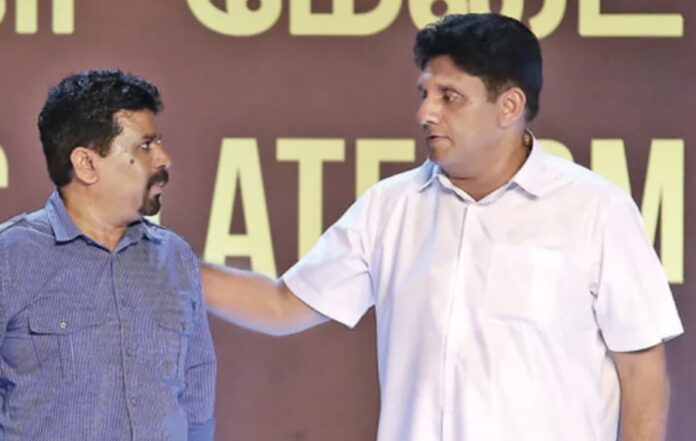By Adolf
Sri Lanka’s political landscape is entering a decisive phase. With economic stabilisation still fragile, the search for leadership that combines experience, credibility, and vision has become central to public discourse. In this context, Sajith Premadasa has come of age as a national leader, positioning himself as the most formidable candidate to take on Anura Kumara Dissanayake (AKD) in a future presidential contest.
Journey
Premadasa’s journey has been long and often underestimated. For years, critics dismissed him as an extension of his father’s legacy rather than a leader in his own right. Yet, his resilience, consistent focus on grassroots issues, and ability to navigate the challenges of opposition politics have strengthened his credibility. Today, he leads the Samagi Jana Balawegaya (SJB), a party widely regarded as the best-organised and most professional political team in Sri Lanka. Unlike smaller, personality-driven outfits, the SJB has attracted technocrats, professionals, and seasoned political figures, giving it a depth and balance rare in the current political spectrum.
Opportunity to Unify
A significant factor working in Premadasa’s favour is the inevitability of generational change. President Ranil Wickremesinghe, for all his achievements in steering the country through its darkest economic crisis, is now widely viewed as too old to seek another mandate. His role has been historic, but the baton must pass. In this vacuum, Sajith emerges not only as a viable alternative but also as a leader who has grown into the role through years of persistence, constructive opposition, and steady policy articulation.
The Limits of Populism
Anura Kumara Dissanayake, meanwhile, has been riding high on populist rhetoric and the goodwill generated by the JVP’s promise of change. But the test of leadership goes beyond fiery speeches and exposés of opponents. If AKD is to build a lasting legacy, he must abandon the politics of witch-hunting. The law must be applied equally—not just against rivals but also against his own camp. Failure to do so risks reducing him to another partisan figure unwilling to rise above vendetta politics.
The Arrest of Ranil
The recent arrest of Ranil Wickremesinghe on a poorly framed charge revealed how much political capital Anura has squandered. The government cut a sorry figure by pursuing this action, pleasing only a narrow base rather than governing in the interest of all. Governing a country is not about pandering to 35% of the electorate. Anura must not forget that he failed to secure even 45% of the vote at the last election. If he continues down this path, he risks being remembered not as a reformer, but as a leader who squandered his mandate.
The Future
With three and a half years still left in his tenure, Anura has a choice. He can waste this time chasing enemies, or he can channel his political capital into reform, governance, and institution-building. If he fails, Sajith Premadasa and the SJB—backed by the most credible team in opposition—will be ready to take the reins.
Sri Lanka deserves a mature contest between leaders with clear plans, not a circus of vendetta politics. Sajith Premadasa, with his political maturity, growing stature, and proven team, is now best placed to take on Anura in that decisive battle for the country’s future.
